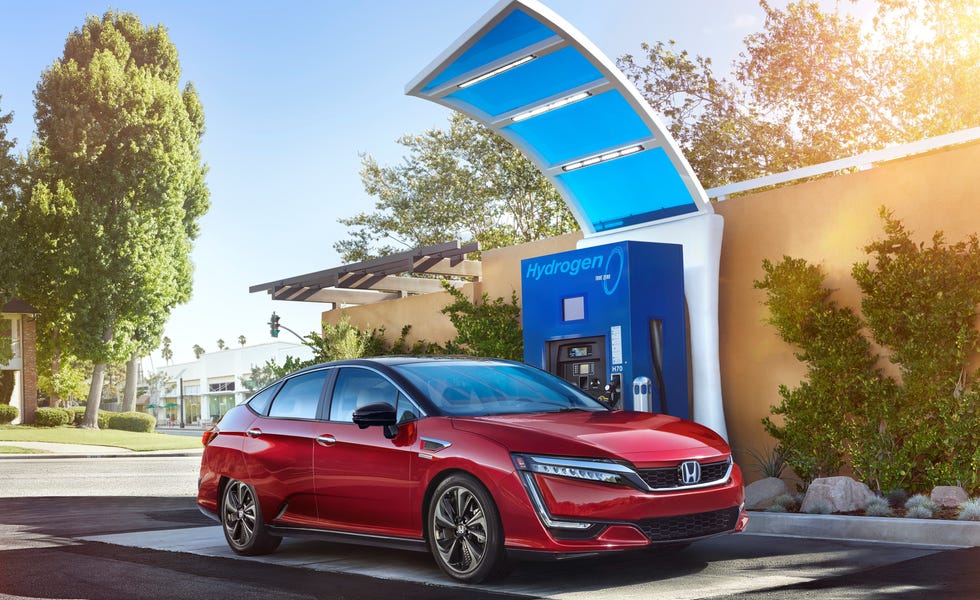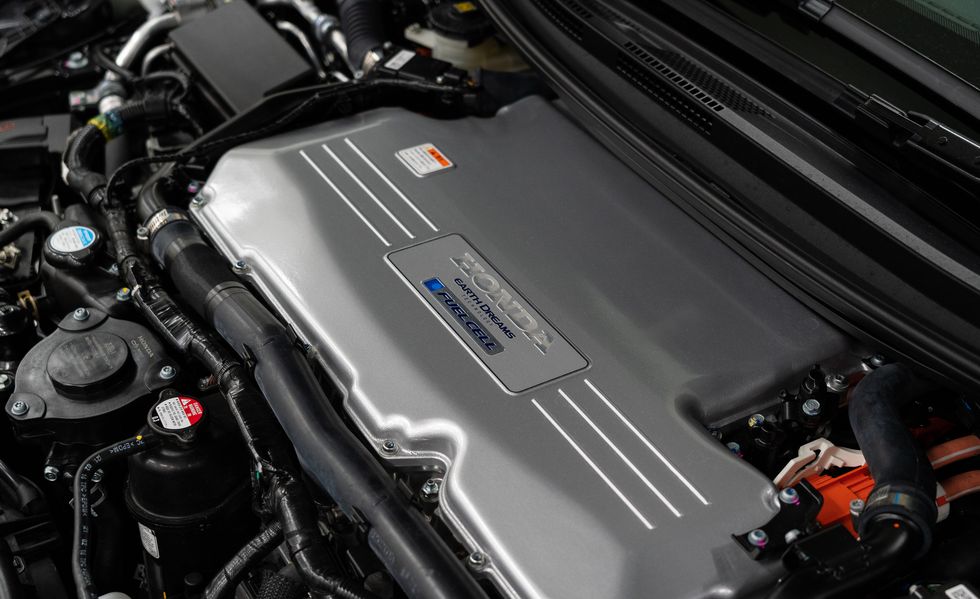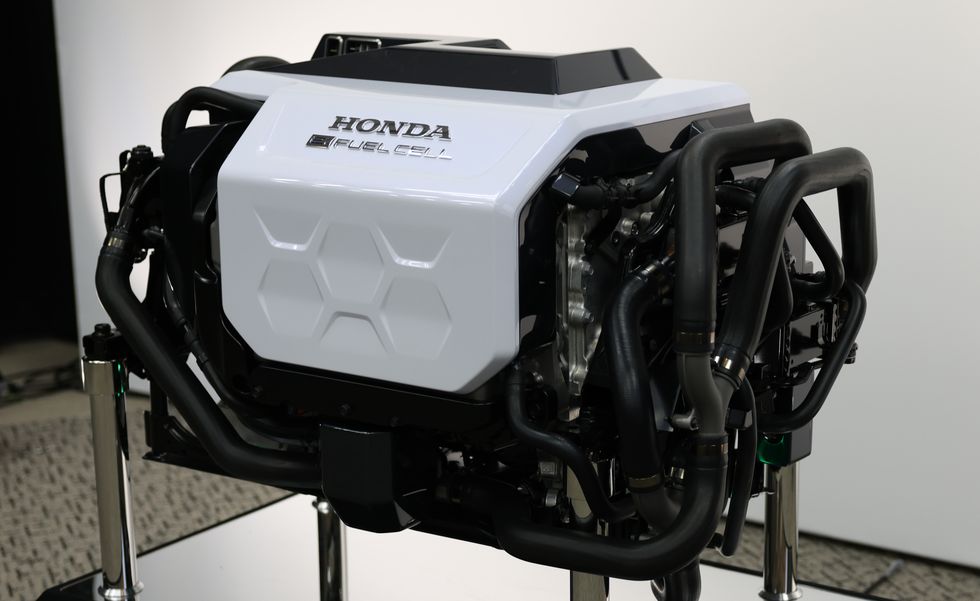- Honda’s next hydrogen-powered vehicle will be a plug-in version of the CR-V, arriving in 2024.
- Honda co-developed the new fuel cell system with GM and said it would cost just a third as much as the fuel cell stack in the Clarity while also being more durable.
- Honda will build 2000 units of its next-gen fuel cell system a year by 2025, but some will likely be used by industry partners.
Honda’s next hydrogen-powered vehicle will be a version of the new CR-V with plug-in capability. The automaker started talking last year about this follow-up to the company’s previous H2 vehicle, the Clarity Fuel Cell, which was discontinued in 2021, and now the picture surrounding the powertrain is becoming a bit clearer.
Honda announced in 2022 that its next-generation fuel cell vehicle, based on the CR-V, will go on sale in 2024 in North America and Japan. The hydrogen-powered SUV will use a fuel cell system co-developed with GM and will have two H2 tanks in the rear of the vehicle, an intelligent power unit under the seats and a fuel cell system and drive unit mounted as one under the front hood. The battery in the plug-in part of the equation won’t power the CR-V for too many miles and is apparently small enough that it didn’t merit space on Honda’s vague diagram of the upcoming vehicle. Honda said the hydrogen CR-V will also have a power export function.
Who’s Going to Get This CR-V?
Honda isn’t saying if the new H2 CR-V will be sold outside California, the only place where the Clarity Fuel Cell could be leased, but did say production of the fuel cell CR-V will begin in 2024 at the Performance Manufacturing Center in Ohio, including vehicles that will be exported to Japan.
Honda remains coy about further details regarding the vehicle itself but did announce more information about the CR-V’s next-generation fuel system this week. Ryan Harty, senior manager and division lead of the energy solution business division at American Honda Motor Company, said that the new system is more than twice as durable and has “significantly faster” startup times at frigid temperatures (under -22 degrees F). Also, Harty said, compared to the fuel cell system found in the now-defunct Clarity, the next-gen system costs two-thirds less to build. That massive drop is thanks to changes in materials, like using “innovative materials” for electrodes and manufacturing specifications, as well as a plan to simply build more units.
Honda never announced how many Clarity Fuel Cell vehicles it sold, although a spokesperson told Car and Driver that there had been 2116 total leases of that model in the U.S. Still, given that Honda sold only around 41,000 of all versions of Clarity vehicles during the five years it was available (most of them being the plug-in-hybrid version), the company will only have to increase production a little to improve the economies of scale.
Honda said it plans to build around 2000 units of its next-gen fuel cell system a year by 2025 at the Fuel Cell System Manufacturing Center that Honda and GM run in Michigan. By 2030, Honda plans to build 60,000 units a year of either this unit or a further improved fuel cell system. Honda has not announced any development or manufacturing partners for the future-gen system (in other words, GM is not necessarily involved) but plans to make it even more powerful and cost-effective.
“Compared to the next-generation system, we set additional targets to reduce the cost by one-half and to double the durability,” Harty said. “We’re targeting to make the future-generation system to be comparable with diesel engines in terms of ease of use and total cost of ownership.”
Looking to Spread This Technology Around
Honda said it sees fuel cell systems as vital players in a carbon-neutral society and doesn’t just want to put them in cars. The automaker is searching for partners to test them in commercial vehicles, stationary power stations and construction machinery. Harty said Honda is actively looking for partners in North America to work on fuel cell commercial trucks. Honda is currently testing hydrogen trucks in China with Dongfeng Motors and will start before April 2024 in Japan with Isuzu. In the mid-2020s, Honda will begin selling its fuel cell system to partners in the transportation and industry sectors.
“Basically, our [message today] is really about announcing that the fuel cell power train is technically ready to step in and help not only Honda but other companies to achieve their carbon neutrality and sustainability goals,” Harty said. “To do that, together, we have to develop the business ecosystem and the hydrogen infrastructure around that in order for those customers to achieve their goals.”
This content is imported from poll. You may be able to find the same content in another format, or you may be able to find more information, at their web site.




